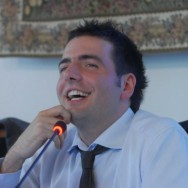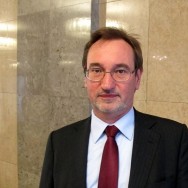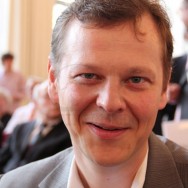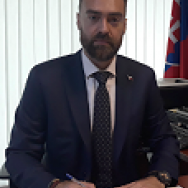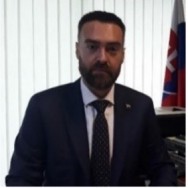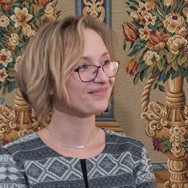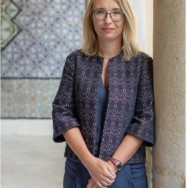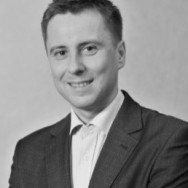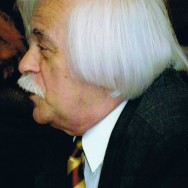PMR Consultant. studied at the Cracow University of Economics and as a Socrates scholarship holder at Universidad de Navarra in Spain. Prior to joining PMR Stathis worked for the biggest Polish office furniture manufacturer, where he was responsible for foreign market entrance strategies. He prepared and implemented outsourcing and logistics projects for a leading Polish cables and wires manufacturer. Stathis has joined PMR in 2005 and since that time has been promoted to Senior Consultant and Principal Consultant. He has taken part in high number of projects including such fields as pharma, sourcing (which he has launched) and mergers and acquisitions assistance. He is also active as a guest lecturer at the Cracow University of Economics. Stathis except of his native Polish speaks also English and Spanish.
Experts
Jakub Karfík
Czech Ambassador to Poland since February 2014. During his 20 year career at the Ministry of Foreign Affairs he has worked as Director General for Section of Bilateral Relations and Director General for Section of Non-European Countries and Development Cooperation. He served as Ambassador of the Czech Republic to Pakistan (1995-1999), Egypt (2002-2006) and Slovakia (2009-2013).
Michał Karniewicz
Journalist from Grodno, former press journalist (Pahonia, Briża Informacji) and radio journalist (Racja) – all closed down. In 2005 he was working for the Polish radio TOK FM.
Bernd Karwen
Born in w Elmshorn. Studied Polish Language, Political Sciences and German as a Foreign Language at the University of Leipzig. Since 1999 has worked in the Polish Institute in Leipzig, where he is responsible for promoting Polish literature. Since 2001 PhD student at the University of Leipzig, also works as a translator.
Tomáš Kašaj
Dr Tomáš Kašaj is Consul General of Slovak Republic in Krakow. He studied at Matej Bel University in Banská Bystrica (2002-2007), worked in Ministry of Foreign Affairs of the Slovak Republic and since 2008 till 2011 was a specialist in the Diplomatic Protocol. Since 2011 to 2015, he was a Consul and Deputy Consul General of Slovak Republic in Krakow. He is fluent in English and Polish and beginner in Hungarian. He likes sport, cinema and music.
Tomáš Kašaj
Dr Tomáš Kašaj is Consul General of Slovak Republic in Krakow. He studied at Matej Bel University in Banská Bystrica (2002-2007), worked in Ministry of Foreign Affairs of the Slovak Republic and since 2008 till 2011 was a specialist in the Diplomatic Protocol. Since 2011 to 2015, he was a Consul and Deputy Consul General of Slovak Republic in Krakow. He is fluent in English and Polish and beginner in Hungarian. He likes sport, cinema and music.
Dominika Kasprowicz
PhD (Degree) in Social Sciences, Associate Professor at the Institute of Journalism, Media and Social Communication of the Jagiellonian University, since October 2016 the director of the Villa Decius, Poland. Cultural manager and analyst the politics of CEE, author of numerous publication.Her research area includes political communication, populism and social innovations in politics. Recently co-authored volumes: Politics, Society and the Economy in Contemporary Poland. An Introduction, Warsaw 2016. Passionate about creatinve design thinking, early music and cross-country skiing
Dominika Kasprowicz
Dominika Kasprowicz is an academic researcher and international projects' manager, PhD (Degree) in Political Science (2010), Associate Professor at the Jagiellonian University (Institute of Journalism, Media and Social Communication), holder of the European Diploma in Cultural Project Management, graduee of the IVLP programme, since 2016 CEO of the Villa Decius, Poland - cultural institution, residency for artists and scholars at risk, awarded with a title of Ambassador of Multiculralism by a City of Krakow (2023). Member of several executive boards and expert panels i.e. of "SO-CLOSE Enhancing Social Cohesion through Sharing the Cultural Heritage of Forced Migrations" H2020 project, member of the Interdisciplinary Team of OPEN KRAKOW Programme untill 2023), UNAEuropa Heritage Lab. Initiator of numerous programmes adressing the needs of refugees and migrants, minorities in Poland, coordinator of the ICORN Programme in Krakow. Her research area includes cultural diplomacy and management, political communication, populism and social innovations in politics. Choice of co-authored publications: "Communicating Populism. Comparing Actor Perceptions, Media Coverage, and Effects on Citizens in Europe", Routledge, 2019, "Politics, Society and the Economy in Contemporary Poland. An Introduction", Scholar 2016.
Tomasz Kasprowicz
Expert in the field of economy. Doctor of Finances. A graduate of Southern Illinois University Carbondale, National Louis University. Academic lecturer with over a decade of experience on three continents. Commentator and journalist, at home and abroad (including Polityka, Gazeta Bankowa, obserwatorfinansowy.pl, Visegrad Insight, Reporter). Range of specialization include: markets and financial institutions, pension systems, entrepreneurship, fiscal and monetary policy, the tax system. Currently, Assistant professor at the University of Business in Dąbrowa Górnicza. Since 2008, an entrepreneur in the IT industry in southern Poland. Editor of the economics department at Res Publica Nowa. In the past, a consultant at McKinsey & Company.
Tamás Katona
Ambassador of The Republic of Hungary to Poland (2000-2002). Professor of history and politician. 1998-2000 professor and lecturer at Károli Gáspár Protestant University, Budapest. 1990-1998 Member of Parliament (Hungarian Democratic Forum, Hungarian Democratic People's Party). 1990-1992 Secretary of State for Foreign Affairs. 1992-1994 Secretary of State, Prime Minister's Office.

